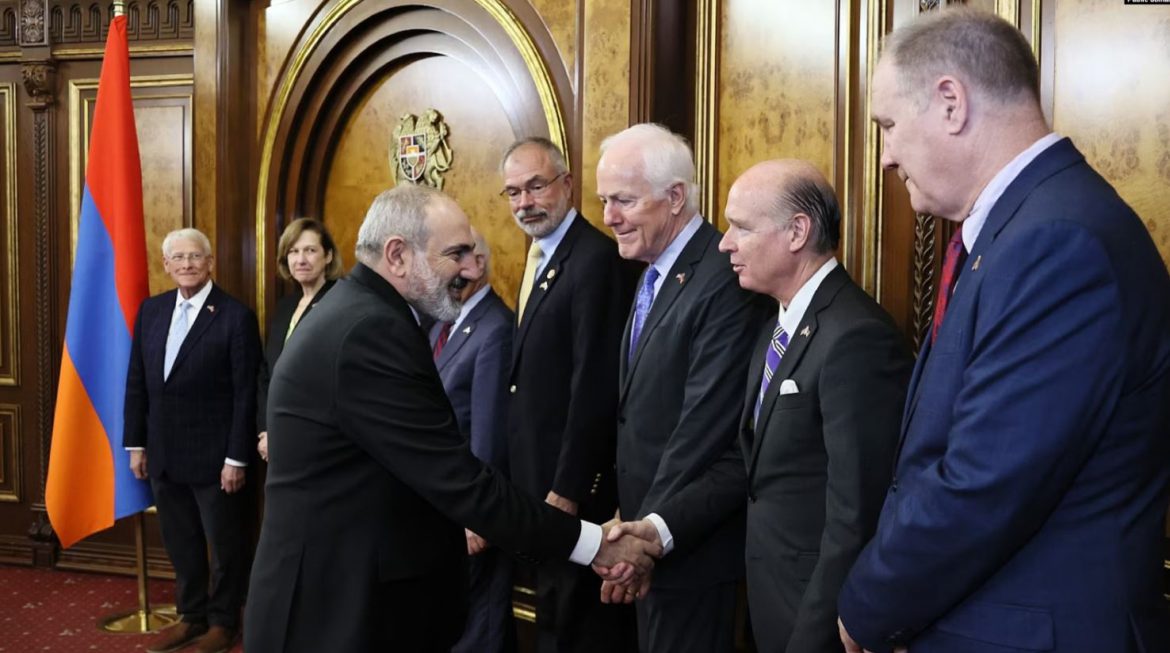A delegation of U.S. lawmakers concluded their four-day visit to Armenia on Friday, expressing support for the country’s sovereignty and praising its government for implementing democratic reforms and fostering ties with Western nations. However, there is a growing undercurrent of skepticism regarding the true effectiveness of Prime Minister Nikol Pashinyan’s reforms and the underlying motives of U.S. support.
The group, comprising three senators and five congressmen, met with Pashinyan, other high-ranking officials, and opposition members, and toured a segment of the Armenian-Azerbaijani border. While the visit aimed to highlight strengthened partnerships, questions linger about whether these gestures translate into substantive benefits for Armenia.
“We are here as friends and we want to strengthen our partnership,” declared Ben Cardin, chairman of the U.S. Senate Foreign Relations Committee, during a press briefing with the delegation and Armenian parliament speaker Alen Simonian. Cardin emphasized the desire to deepen cooperation in security, economic, and political areas, committing to identifying opportunities to build on existing progress.
The American lawmakers expressed approval of the Armenian government’s initiatives to resolve the conflict with Azerbaijan. Cardin criticized Russia, asserting that Moscow does not support the peace process with Azerbaijan. Roger Wicker, the ranking member of the Senate Armed Services Committee, argued that Russia and Iran are resistant to democratic and liberal developments in Armenia, disapproving of the significant progress claimed by Pashinyan’s administration.
Representative Joe Wilson, head of the U.S. Helsinki Commission, characterized Armenia as a vital U.S. partner striving to distance itself from Russian influence and align more closely with the West. Wilson praised the Pashinyan government’s independent foreign policy as a counter to Russian President Vladimir Putin’s efforts to revive Soviet-era dominance. Throughout Pashinyan’s six-year leadership, both the U.S. and the European Union have backed his reforms. U.S. Secretary of State Antony Blinken, during a congressional hearing in Washington in May, commended Pashinyan’s leadership during challenging times.
However, Armenian opposition leaders increasingly accuse the West of overlooking undemocratic practices and human rights violations in Armenia for strategic reasons. Several parliament deputies from the country’s two main opposition alliances met with the visiting U.S. lawmakers on Wednesday. Neither alliance issued a statement about the meeting.




